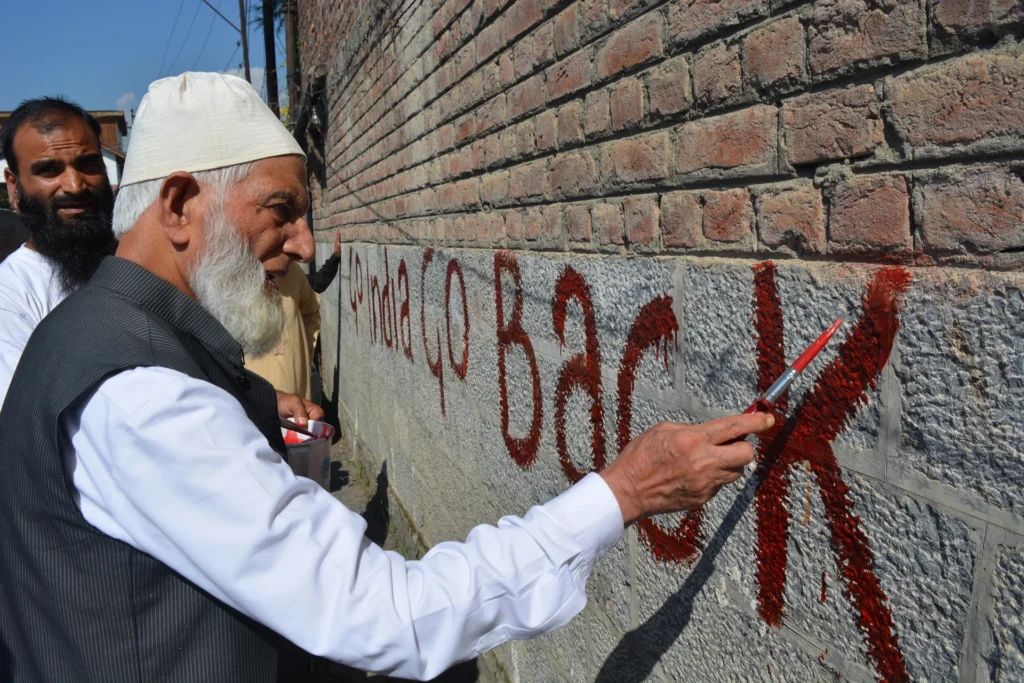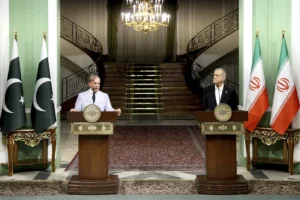In the misty valleys of Kashmir, a voice rose that echoed the hopes and dreams of millions yearning for freedom. That voice belonged to Syed Ali Gilani, a man whose life became synonymous with Kashmir’s defiance against oppression. Today, on his fourth death anniversary, it is a moment not only to remember the man but to relive his journey, a story of unwavering courage, sacrifice, and an unbreakable spirit.
Early Life and Political Awakening
Born in 1929 in a modest family in Bandipora, North Kashmir, Geelani’s early life was shaped by hardship and a profound sense of justice. His education in Islamic theology and literature, completed in Lahore, laid the foundation for a lifetime of ideological commitment. From the very beginning, Gilani was no ordinary man; his heart beat for his people and their right to self-determination.
The 1950s marked a turning point. When Syed Ali Gilani joined Jamaat-e-Islami Kashmir, his political journey truly began. It was here that he found his calling: the struggle for Kashmir. Electing public office in the 1970s gave him a platform, but Gilani’s true impact was felt beyond the corridors of power. As the region plunged into unrest in the 1990s, Gilani emerged as a frontline leader of resistance, shaping the contours of Kashmir’s political landscape with his uncompromising stance.
Syed Ali Gilani: The Symbol of Kashmir’s Defiance
It was through the creation and leadership of the All Parties Hurriyat Conference that Gilani’s influence broadened. Founded in 1993, this coalition of political groups represented the voice of Kashmiri aspirations for freedom and autonomy. Gilani’s stewardship of the Hurriyat, particularly his leadership after 1998, echoed across the world; his name was inseparable from the demand for a plebiscite as mandated by the United Nations.

What set Gilani apart was his steadfast refusal to dilute his ideals. While many leaders softened their rhetoric and entertained dialogue with India, Syed Ali Gilani remained resolute, insisting that Kashmir’s fate would be decided only through the ballot of its people, not the negotiations of politicians. His famous slogan,
“Ham Pakistani Hain, Pakistan Hamara Hai”
became a battle cry for those who identified with his vision of Kashmir aligned with Pakistan under the umbrella of the two-nation theory.
Ideology and Pro-Pakistan Stance
Gilani’s pro-Pakistan stance was rooted deeply in his ideology of Muslim solidarity and the belief that Kashmir’s path lay in joining Pakistan rather than forging an independent state. This controversial position earned him both admiration and criticism, but never weakened the commitment that defined his life.
His writings further entrenched his legacy. Syed Ali Gilani was not just a political leader but an intellectual force, an author of numerous books such as Nava-e-Hurriyat (Voice of Freedom), Rudad Qafas (Prison Memoirs), and translations of Allama Iqbal’s Persian works. These documented his life’s journey and the Kashmir struggle and inspired many, keeping alive the flames of resistance.
Years of Imprisonment and House Arrest
Despite the trials, Gilani’s resolve was never broken. Decades of imprisonment, physical suffering, and house arrest tested him relentlessly, yet the fire within him refused to be snuffed out. The last twelve years of his life were spent confined to his home, yet his spirit remained the beacon of Kashmir’s defiance.
The End of an Era: Gilani’s Departure
Gilani’s death on September 1, 2021, was a poignant moment. He passed away quietly, but the manner of his burial sparked controversy and highlighted the Indian state’s apprehension of his enduring influence. Denied a funeral befitting a leader of his stature, his body was buried under the cover of darkness, away from public view, and amidst tight security. Families and supporters alleged that security forces forcibly controlled the funeral, an act emblematic of the fear Gilani’s legacy still holds for the Indian authorities.
Today, on the fourth anniversary of his death, tributes pour in from Kashmir and Pakistan. The All Parties Hurriyat Conference has called on people to visit Hyderpora graveyard where Geelani is buried to offer prayers for him and other Kashmiri martyrs. Special prayers are being held in mosques across the territory, with imams and khateebs paying tribute to his lifelong struggle and sacrifices.
Enduring Legacy
Syed Ali Gilani’s legacy transcends his physical death. As one observer noted, he was “not just a person but the name of a mission and a movement.” His life represents the endurance of a voice that refused to be silenced despite decades of imprisonment, house arrest, and personal suffering. Gilani’s slogan still reverberates in the streets, mosques, and hearts of Kashmiris. His story, one of steadfast resistance, is not just history; it is the living pulse of a people determined to shape their destiny.
In remembering Syed Ali Gilani, Kashmir remembers the spirit of defiance, the power of unyielding faith, and the undying hope for justice that no force can extinguish. His story lives on, etched in the collective memory of Kashmir and its continuing struggle for dignity and freedom.








